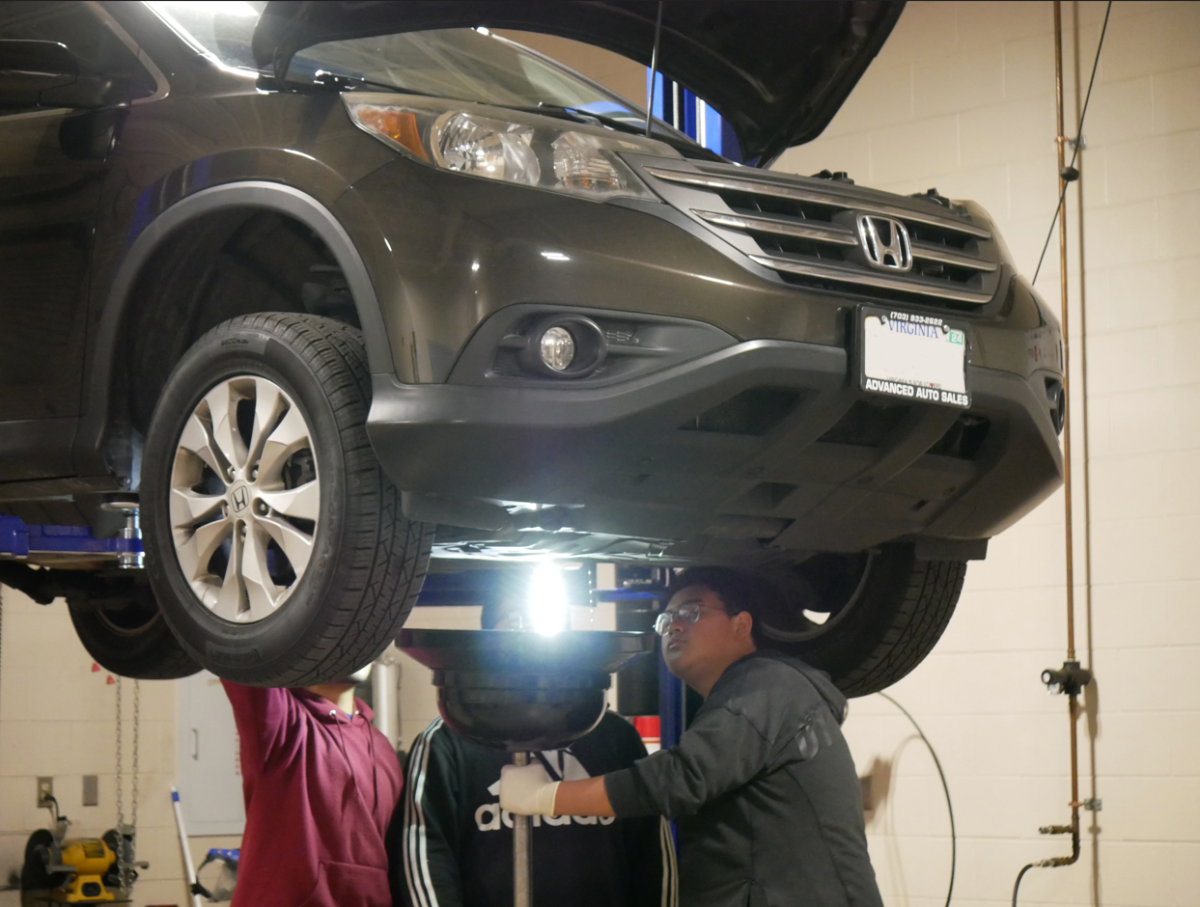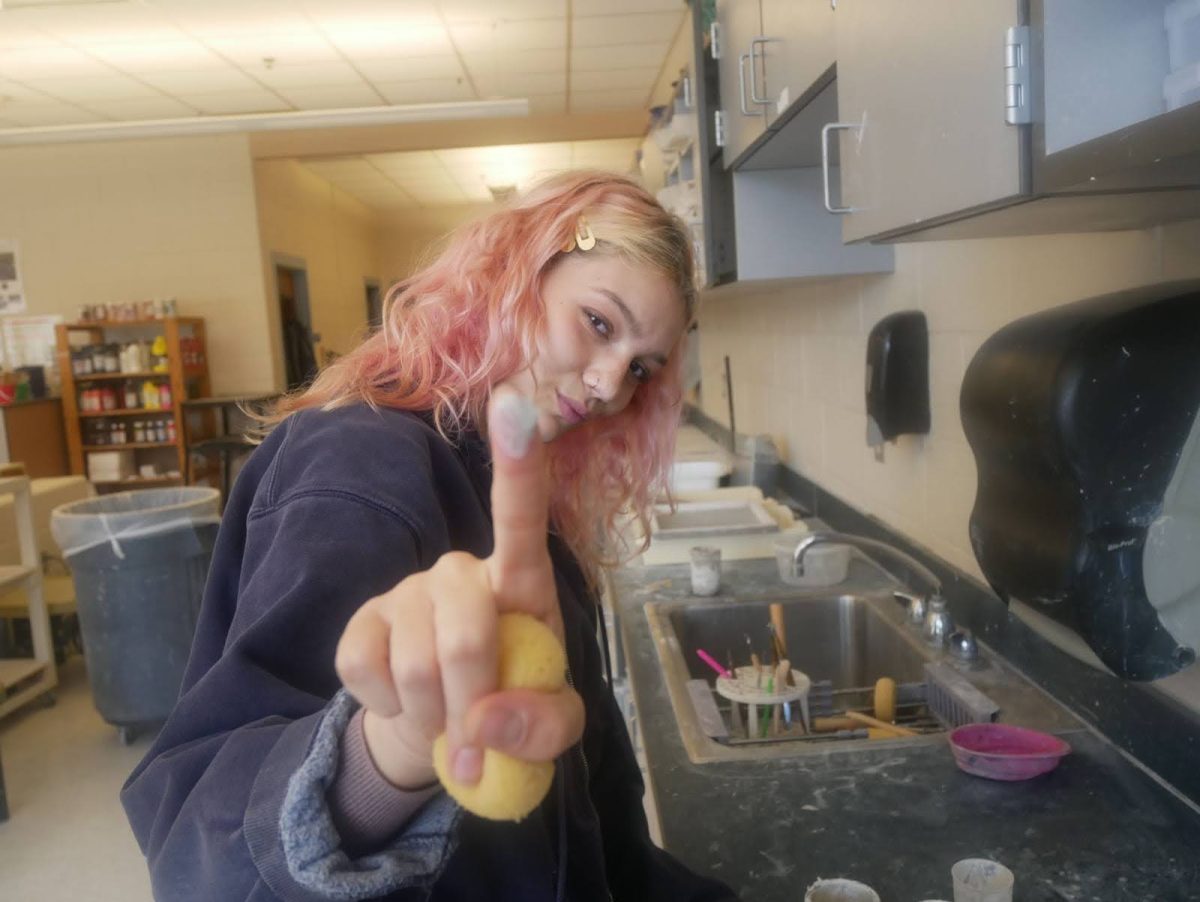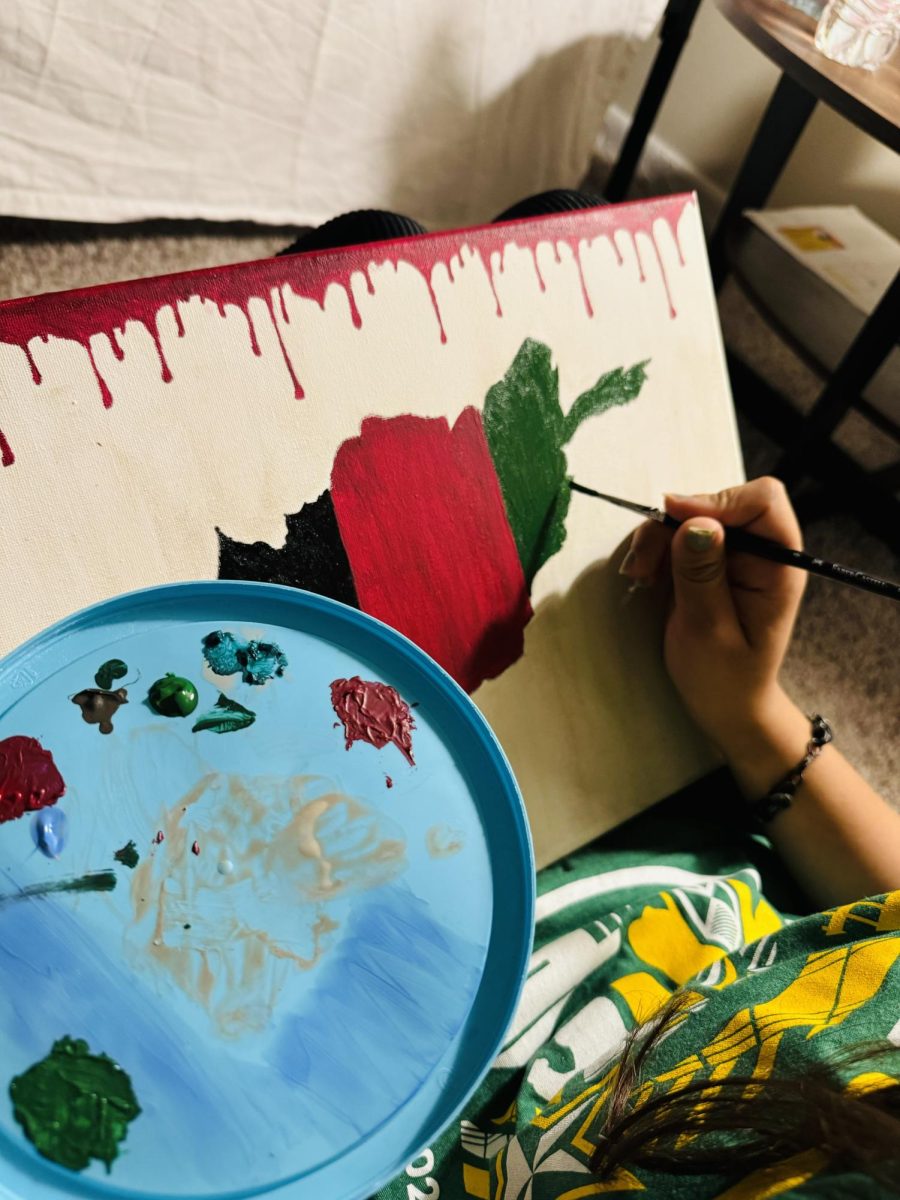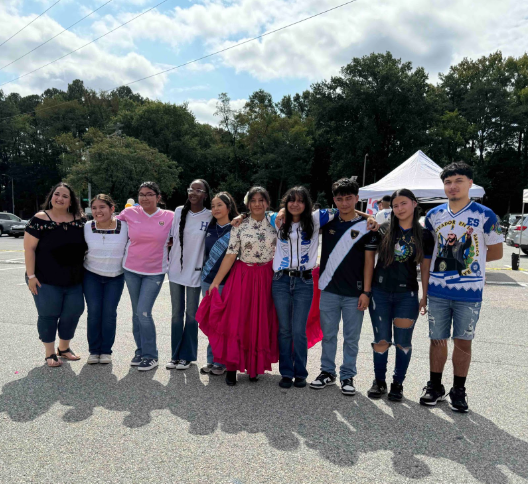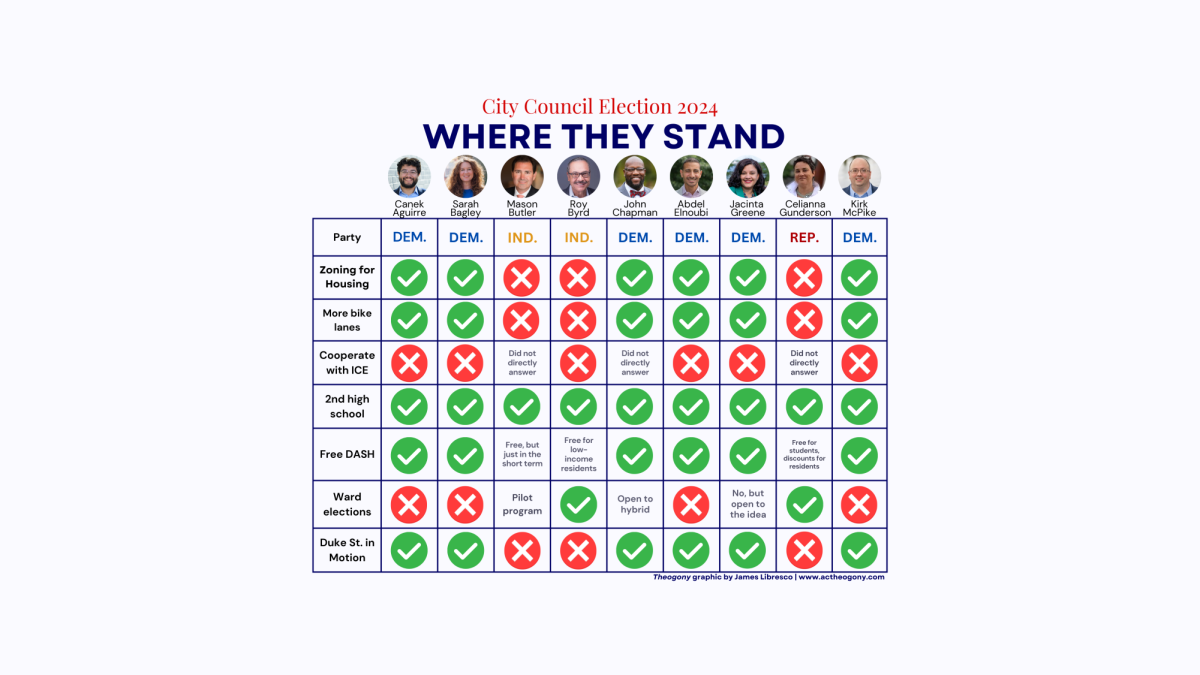Senior Elle Kunik sits behind the wheel, foot poised above the engine. She, like everyone else who crosses the yellow and black safety tape, wears safety goggles as she looks through the window. Ryad Daoussi, who has now taught automotive technology at ACHS for two years, stands in front of seven students. Today, they’re focusing on the basics; none of these onlookers take automotive technology, but they all showed up today out of a budding interest.
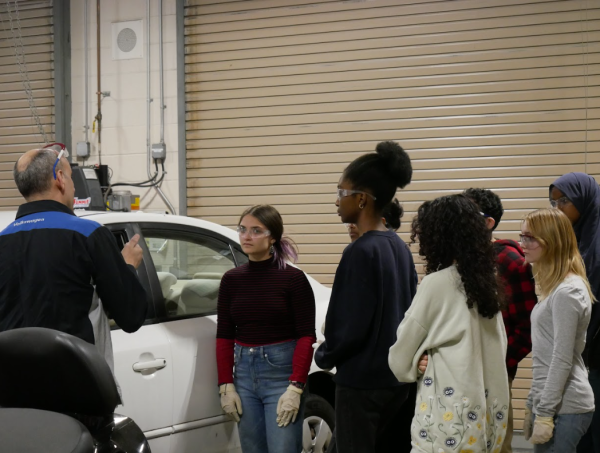
“If you’re more experienced, you’ll probably work on the restoration of the old cars, but for some of our newer students or people who have not taken the class, we typically have a section when we’ll have people working on oil changes and learning the basics of brakes,” said Kunik, president of the club.
The automotive technology program at ACHS has existed “since it was T.C. Williams: the old building.” said former ACHS auto tech teacher Rebecca Fenton. The pathway is divided into three parts: Auto Tech 1, 2 and 3 and is first available to students in their sophomore year.

“The objective of the program is to prepare students for a career in the automotive field. Also, there is a dual enrollment program with NOVA, which means that they get credit here,” said Daoussi. “The main thing is, in Auto 1, we introduce them to what is in an automobile. In Auto 2, you start by getting all the systems separately. Auto 3 is a continuation, and after 3, they’re usually ready to go to college and get at the very least an Associate’s Degree in the automotive program, and then on to become a technician or any type of job.”
Senior Zachary Guokas discovered the program in the course catalog during the summer before his sophomore year. “I went into it kind of dancing around the idea of engineering in general, but once I was in the shop working on cars, it kind of inspired me to really look into it as a potential career field,” Guokas said.

Fenton, who now teaches in Fairfax, said she has seen students matriculate from the program and pursue professions in automotive technology. “I’ve had students follow the traditional path and go to college and do engineering, and this is a great base for that. I’ve seen students go right into working in the field, or they go to trade programs.”
“Being in auto tech, the class and the club, has really furthered my knowledge on engineering — how interesting it is and how you don’t have to be good at something to start out with, because everyone starts out somewhere. It’s really taught me how to dive head-on into challenges, especially in the STEM world,” said Kunik.
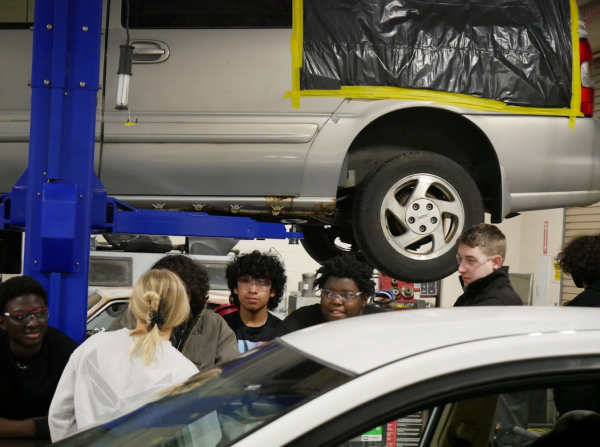
This year’s revival of the Auto Tech Club represents a new direction for the program and the role of CTE courses at ACHS. It creates an opportunity that emphasizes, in Daoussi and Fenton’s view, the growing importance of appreciating the trades. Students in the automotive pathway may also take Automotive Service Excellence (ASE) Certification tests. These certifications carry on into the workforce.
“There was a whole push when I was coming out of high school for everyone to go to college. And now that everyone’s gone to college, and the costs have all gone up, we’re missing all these tradespeople,” said Fenton. “We don’t have plumbers or electricians or technicians [so] there’s going to be a bigger and bigger push for automotive education. This ties into everything; it ties into robotics. Like, factories that are replacing human workers are replacing them with machines. Who’s going to fix those machines when they break? Technicians. Plumbers. The tradespeople, basically. These are jobs you can’t ship overseas.”
“Finally, [administrations and schools] are waking up to the fact that — Wait a minute — those programs not only have their place, but they have a future, and we’re going to make sure that people understand that we are very serious about helping it,” said Daoussi.
“We just wanted to have a place where any student, regardless of if they take the class or not and regardless of prior experience, could just come and learn about cars in a fun environment without the stress of having to pass a class,” said Kunik.

The face of automotive technology at ACHS is also changing. More women are beginning to take hold of a traditionally male dominated field. In 2022, the Bureau of Labor Statistics found that only 2.9% of automotive service technicians and mechanics are female.
“A common misconception or something that deters people from joining the club or the class is thinking that it’s only for boys or only for a certain demographic,” said Kunik. “It’s a skill set that’s for every person. I think people should know anyone can join, and you shouldn’t be scared to.”
“Sometimes, it’s not the field that’s too hard, it’s the shop culture. It’s the way the guys get along in the shop that sometimes will drive women away from that, because they’re not finding the support they need, and I’m like, ‘Come take my class! I got you!’ I’m excited to see more women, because they are more willing to learn,” said Fenton.
“I really like the environment. I feel like in automotive it’s just a bunch of like-minded people. No matter why you’re taking the class, you’re there for one reason,” said Guokas.
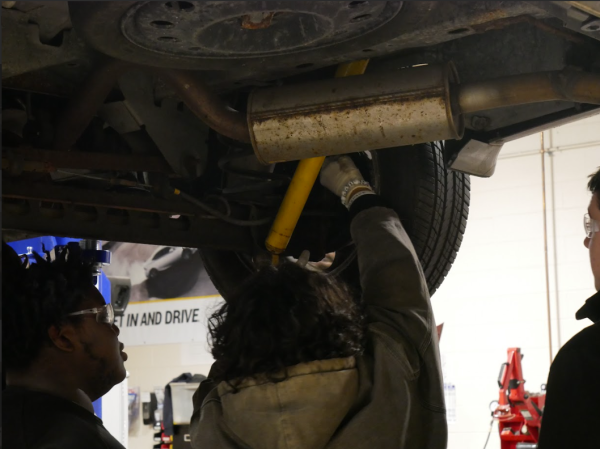
The Auto Tech club is now looking to fundraise and grow their program. Currently, the club is working on preparing a 1970s Chevrolet Vega. Although the classes mainly do “small fixes” to cars — including staff member’s vehicles — Daoussi is looking at the potential for larger projects in the future.
“[Auto club] is trying to build a website and find ways to fund through donations and basically repairs for the kids to get tools, go on field trips, and stuff like that. That’s what we’re looking for, and we hope that people will understand it and participate in the program — male and female. The back-end of the program; I think that [Central Office and admin] is starting to understand that it has its place in the future,” said Daoussi.
All photos by Yahney-Marie Sangaré


